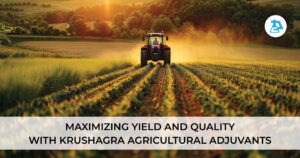In recent years, biopesticides have gained popularity as a safer and more environmentally friendly alternative to chemical pesticides. Despite their growing use, many misconceptions still surround them. Let’s clear the air and provide a better understanding of what biopesticides are and how they benefit both agriculture and the environment.
Misconception 1: Biopesticides Are Ineffective
One of the most prevalent misconceptions is that biopesticides are not as effective as chemical pesticides. This belief stems from the idea that natural solutions are inherently weaker.
Addressing the Misconception:
Biopesticides can be highly effective when used correctly. They work by targeting specific pests, disrupting their life cycles, or boosting plants’ natural defenses. For instance, Bacillus thuringiensis (Bt) is a well-known biopesticide that produces proteins toxic to certain insects but safe for humans and wildlife. Studies and practical applications have shown that biopesticides can control pests just as effectively as their chemical counterparts when integrated into pest management programs.
Misconception 2: Biopesticides Are Always Safe
While biopesticides are generally safer than chemical pesticides, there is a misconception that they are entirely harmless and can be used indiscriminately.
Addressing the Misconception:
Biopesticides are designed to be safer, but they still require proper handling and application. It’s crucial to follow guidelines and usage instructions to avoid any unintended effects on non-target organisms and the environment. Just like any other pest control product, responsible use is key to maximizing benefits and minimizing risks.
Misconception 3: Biopesticides Are Only for Organic Farming
Many people believe that biopesticides are solely for organic farming and have no place in conventional agriculture.
Addressing the Misconception:
Biopesticides are versatile tools that can be integrated into both organic and conventional farming systems. In conventional farming, they can be part of an integrated pest management (IPM) strategy, reducing the reliance on chemical pesticides and helping manage resistance. Their use in various farming practices highlights their adaptability and effectiveness across different agricultural contexts.
Misconception 4: Biopesticides Are Too Expensive
Another common myth is that biopesticides are cost-prohibitive compared to chemical pesticides.
Addressing the Misconception:
While the initial cost of biopesticides can sometimes be higher, their long-term benefits often outweigh the expenses. Biopesticides can reduce the frequency of applications needed, lower the risk of pest resistance, and improve soil health and biodiversity. These factors can lead to overall cost savings and more sustainable farming practices in the long run.
Misconception 5: Biopesticides Work Slowly
Some believe that biopesticides take too long to show results, making them less practical for immediate pest control needs.
Addressing the Misconception:
The effectiveness and speed of biopesticides can vary depending on the type of pest and the product used. While some biopesticides may take longer to show visible results, many work quickly and efficiently. For example, certain microbial biopesticides can kill pests within hours of application. Understanding the specific action mechanism and timing can help farmers plan and apply biopesticides more effectively.
Conclusion
Biopesticides offer a promising alternative to chemical pesticides, with numerous benefits for the environment and human health. By addressing common misconceptions, we can encourage more widespread and informed use of these valuable tools. Embracing biopesticides as part of integrated pest management strategies can lead to more sustainable and productive agricultural practices.
If you’re a farmer, gardener, or simply someone interested in sustainable agriculture, consider exploring biopesticides and their potential benefits. With proper knowledge and application, they can be a powerful ally in promoting healthier crops and a healthier planet.






